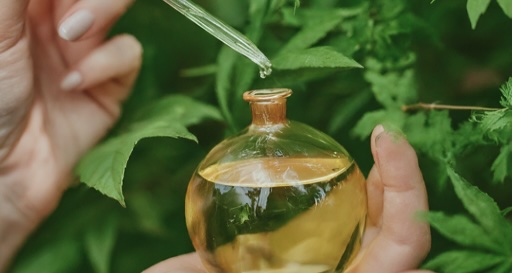There’s a growing concern for ethical and eco-friendly practices across almost every industry. The perfume industry is no different to this movement. And many perfume companies are doing their part to leave less, or no, footprint and become more sustainable. Not only is it the right thing to do, but it’s what the people want making sustainability and ethical sourcing a savvy marketing strategy.
Understanding these practices can help you better select your next sustainable perfume.
But what does “eco-friendly, sustainable, ethical perfumes” mean? We’ve got you covered.
The Importance of Sustainable Perfume Practices
Sustainability is a buzz word, but what does it really mean in concern with the perfume industry?
To understand that, we must first understand traditional perfume creation practices. Creating perfumes has led to over-harvesting of natural ingredients which can dramatically sway biodiversity in bad directions. To counter, some companies use synthetic chemicals in place of natural ones but these often aren’t eco-friendly. Sustainable practices in perfumery focus on minimizing these impacts by using responsibly-sourced natural ingredients. As well, it translates into companies using green chemistry that reduces waste and emphasizing biodegradability in their products.
Many perfumes rely on natural ingredients such as the essential oils from plants. Sustainable perfumery ensures that these plants are grown and harvested in more responsible ways so as not to deplete resources. Because yeah, we’d like our future generations to enjoy not only perfumes, but also a thriving environment!
Sustainable perfumery may also consider health impacts of ingredients. Avoiding harmful chemicals found in many legacy perfumes tend to be a safer experience, particularly for our skin.
Ethical sourcing is a crucial component of sustainability. This means perfume companies ensure that ingredients are sourced in a way that is fair to workers and doesn’t’ partake in exploiting a labor force. It encompasses fair trade practices which insures livable wages and safe working conditions.
Increasingly, consumers are seeking out products that align with their values, including environmental and ethical concerns. The perfume industry’s move towards sustainability is partially a response to this growing consumer consciousness.
Innovations in Sustainable Perfume Manufacturing
Sustainable perfume making employs green chemistry concepts. This involves designing production processes that reduce the use of hazardous substances. The use of essential oils, which are solvent-free extraction processes, is one example.
There have been a great many innovations in the reduction of water used during the perfume production process. The implementation of closed loop water systems where waste products are recycled back through the production process largely reduces environmental impacts.
Another hot topic in the perfume sustainability realm is energy efficiency. This means utilizing renewable energy sources such as solar or wind power in manufacturing facilities to decrease the carbon footprint.
And lastly, research and development of natural preservatives as alternatives to synthetic ones, reducing the chemical footprint of perfumes.Innovation with packaging that leads to recyclable, biodegradable, or refillable concepts, means less plastic waste.
Vegan and Cruelty Free
So what does vegan, cruelty free perfume really mean?
Vegan perfumes are formulated without any animal-derived ingredients. Common non-vegan ingredients in traditional perfumes include musk (from the musk deer), ambergris (from sperm whales), castoreum (from beavers), and honey. The vegan criteria extend to all aspects of the perfume, including the scent, colorants, and binders.
On the other hand, cruelty-free perfumes are scents that have not used animal testing on the perfume as a whole, or any of the individual ingredients.
Both vegan and cruelty free perfume initiatives support animal welfare and the ethical treatment of animals in some way. And this often helps the perfume brand build trust with a consumer that’s ethically responsible in their buying habits.
The challenge for perfume companies is ensuring that ingredients are both vegan and cruelty-free, which can require rigorous sourcing and transparency from suppliers. And this can mean higher production costs, which inevitably gets passed down to us, the consumers.
The vegan and cruelty-free perfume trend not only resonates with a segment of the market seeking ethical products but also encourages innovation in perfume formulation and testing methods. And that’s a pretty great add on when it comes to the perfume industry.
Final Notes
The sustainable perfume market is growing as more consumers expect companies to simply do better. Sustainable practices, as well as vegan and cruelty-free perfume initiatives, encourage creativity in perfumes which result in scent innovations. It’s also a wonderful way for perfume brands to connect and build trust across new consumers.

Comments are closed, but trackbacks and pingbacks are open.